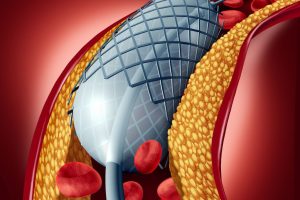
4 Causes of Uterine Fibroids
So, you’ve been diagnosed with uterine fibroids…
If you’ve been diagnosed with uterine fibroids or are in the risk category for them, it can be scary to know that they can cause a lot of pain and discomfort. It can also be difficult to know what causes fibroids in the first place. Here are some things you need to know about this inconvenient condition and how you can keep an eye on it.
Okay, so what is a fibroid again?
A fibroid is a benign tumor that can grow on the uterus. It’s made up of the same tissue as the uterine lining, meaning it can grow quickly and be hard to remove. There are many different reasons for the fibroids and they can affect women of any age. However, they most often happen in women who are entering their childbearing years or past menopause.
Four common causes of uterine fibroids
There are many causes for fibroids, but these are the most common ones:
- Age: The older you get, the more your chances of developing fibroids increases. Fibroids are also more likely to develop in people who are overweight or have high blood pressure.
- Family History: If your mother or sister has had fibroids, then it’s more likely that you will too.
- Pregnancy: Pregnancy is one of the most common causes for fibroids because it places a lot of pressure on the pelvic region.
- Hereditary Conditions: If you have a hereditary condition like uterine cancer, polycystic ovarian syndrome (PCOS), or endometriosis, then it’s possible for you to develop fibroids.
It can be difficult to know what the main cause of these pesky fibroids is, but realizing the four main causes can help you narrow it down.
Know the warning signs of these conditions
There are different signs that you may have fibroids. Some are more serious than others, but nonetheless women often experience one or more of these symptoms:
- Painful menstrual cramps
- Heavy menstrual bleeding
- Backache
- Urinary frequency
If you have these symptoms frequently, it’s important to contact us immediately. Fibroid tumors can grow in size and can cause uterine prolapse, which is when the uterus falls out of place. You might not notice any symptoms at first, but after awhile you might feel pressure or find that your uterus is bigger than usual. It’s also important to note that fibroids can lead to infertility depending on the severity.
Fibroids are one of the most common female gynecological disorders, but that doesn’t make them any less of a concern.



